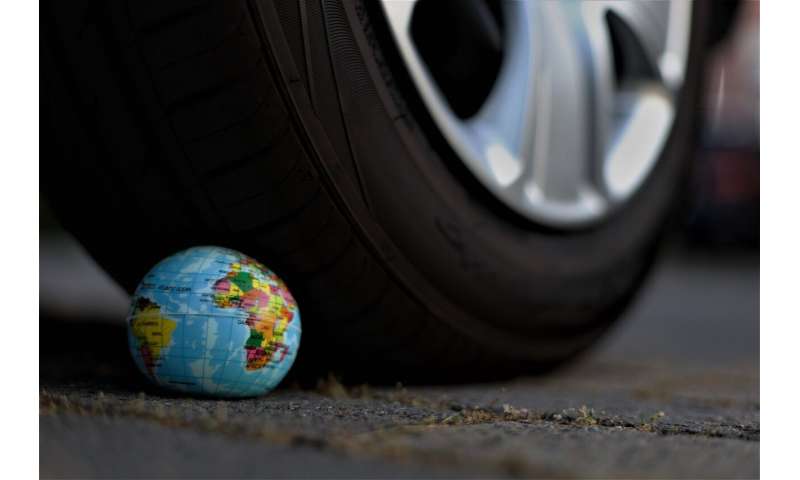Narrowing the inequality divide in public health

In the face of political rumblings and media attention, the expansion of London's Ultra Low Emission Zone (ULEZ) has sparked fractious debate around tackling vehicle emissions. But the science speaks for itself—the effects of air pollution on our health (and particularly the health of our children) is devastating.
A staggering 1 in 3 children in the U.K. are exposed to toxic air.
But the chance of exposure to dirty air is far from equal across the country. For urban dwellers in the U.K.'s most built-up towns and cities, the risks are significantly higher. At Queen Mary University of London, Professor Chris Griffiths and I are leading a team to address this and other health inequalities caused by air pollution so that everyone in the U.K. and beyond has the chance to breathe cleaner air.
The pollution postcode lottery
Vehicle emissions are a major factor in determining air quality so, it's residents in the towns and cities with the most traffic on the roads who are most vulnerable to the adverse effects of air pollution. In London, these emissions account for around half of all air pollution.
The evidence is overwhelming: cleaner air means better health. But can we ensure that people living in our most densely populated areas are being protected from the damage caused by toxic air? Since the introduction of ULEZ in 2019, we've already seen improvement in the capital's air quality. Today, harmful NO2 concentrations in central London have been reduced by a remarkable 29% as a result of charging diesel cars for entering into ULEZ areas.
An invisible killer
Linked to more than 40,000 premature adult deaths every year, air pollution poses one of the most significant threats to public health in the U.K. But the daily impact poor air quality has on our lungs can be hard to comprehend given there is no visible trace of its effects. The health ramifications of toxic air, however, are significant. In addition to being linked to premature adult death, research has also shown that air pollution can lead to a number of serious long-term conditions including dementia, heart disease and cancer.
In children, the adverse effects are even more pronounced. Consistent exposure to toxic air can have harmful ramifications on lung development and function. A long-term study we launched in 2008 on the effect of London's Low Emission Zone (LEZ) showed that increased exposure to nitrogen oxides and particulate matter in London was linked to reduced lung function—and that reductions in air pollution due to the LEZ weren't enough to reverse the harm caused by inhaling these particles.
Partnering against pushback
Despite the detrimental impact of air pollution, widespread criticism of schemes such as ULEZ remains, mostly due to the financial impact of compliance with the scheme's restrictions. We must look at how we can deal with opposition to measures that so drastically improve public health. The most effective response to criticism against rolling out ULEZ measures on a national scale is a rational, united approach to spreading the message that initiatives like ULEZ will improve the health of millions of children and their families.
In fact, it was such an approach that helped influence the introduction of ULEZ. Doctors Against Diesel was founded in 2016 by Professors Griffiths and Grigg and public health charity Medact, and was critical in campaigning efforts to change public opinion on the dangers of diesel engines. The advocacy group campaigns against diesel vehicles, which are the biggest source of air pollution and a source of some of the most dangerous pollutants. With more than 300 doctors as members, the group were able to convince public decision makers of the need for change to protect public health.
The right to clean air for all
No matter where you live, you should have the right to breathe clean air. At Queen Mary University of London, we're narrowing the inequality divide between urban and rural residents by informing vital policy change in how we plan our towns and cities. Our work has led to greater public awareness and understanding of the dangers of air pollution, and it's helping reduce unnecessary deaths caused by toxic air.
Provided by Queen Mary, University of London